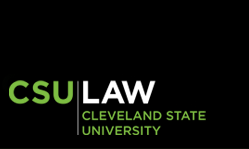Volume
72
Abstract
Most prosecutions in our criminal justice system are resolved by defendants entering ostensibly knowing and intelligent guilty pleas—often following negotiations with the state—before trial. But during my time as a trial judge, I encountered a different type of guilty plea, procured by the state when an already convicted offender sought to clear his or her name through an application for a new trial based on newly discovered evidence. I believe the “Dark Pleas” secured in these circumstances are one of the greatest abuses of power permitted in the criminal justice process.
This article sets down in writing a speech I give to law students, legal practitioners, and citizens throughout the state of Ohio, seeking to lift the veil on a practice that few realize even exists. I begin by explaining how these guilty pleas arise in the post-conviction phase of the criminal process. Then, using examples I have encountered through my service as trial judge and supreme court justice, I show how these pleas are coercive, an abuse of the state’s prosecutorial power, and antithetical to the fundamental principles that undergird the criminal justice system. And it is because of these issues surrounding these pleas that I conclude by calling for their abolition. It is my hope that this article will help trial judges and practitioners identify Dark Pleas and understand their nefarious nature, so that they can stop this abuse of power when they encounter it.
Recommended Citation
Michael P. Donnelly,
The Dark Plea: One of the Most Coercive Abuses of Power Permitted in the Criminal Justice System,
72 Clev. St. L. Rev. Et Cetera
125
(2024)
available at https://engagedscholarship.csuohio.edu/etcetera/vol72/iss1/6
Included in
Courts Commons, Criminal Law Commons, Criminal Procedure Commons, State and Local Government Law Commons

Comments
Michael P. Donnelly is a justice on the Supreme Court of Ohio.